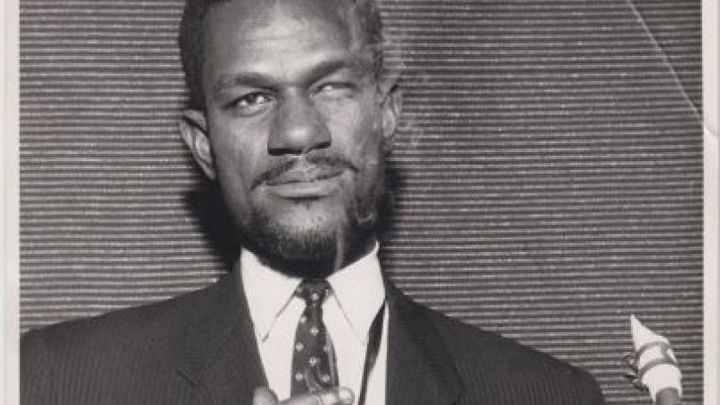
British Jazz PhD Funding Campaign
Arts funding for PhD music students is currently, and increasingly hard to find. PhD music historians doubly so. This campaign has been started to help 2nd year University of Birmingham PhD research student Matt Parker to complete his musicology thesis, entitled:
Nobody's child: British Progressive Jazz 1960 - 1970
Matt is a graduate of Coventry University music department, where he received BA hons 1st class in Music Performance. As a result, he joined the University of Birmingham in 2016 on their PhD upgrade scheme and was awarded full PhD research status in September 2017. Prior to studying for his BA, Matt obtained a Diploma of Higher Education in Jazz from Birmingham Conservatoire, and a Diploma in Percussion from the Musicians Institute. During his time as a student, Matt has so far studied under a number of British Jazz legends, including drummer Clark Tracey (son of the godfather of British Jazz, pianist Stan Tracey), guitarist Ed Speight (Graham Collier Music), and bassist Fred Thelonius Baker (Harry Beckett, Phil Miller).
Aside of his academic achievements, Matt is a multi-instrumentalist and been a professional musician and music educator for the past 23 years, including three years on tour with the worldwide hit show Riverdance, and six years as Popular Music Lecturer for Warwickshire College of F.E. Matt is also an avid life-long record collector and his passion for British Progressive Jazz is evident in the 200 or so recordings from the genre currently in his collection. Below is a video clip of Matt performing with British Jazz/Rock act Demolished Men.
Although Matt receives a scholarship from UoB, this only covers the university’s fees, leaving Matt to find living expenses. Since the course is full time, research students are expected to spend much of the time working on their thesis, which is necessary if one is to produce an exemplary academic work. This however, leaves little time to earn the money needed to cover general expenses such as rent and bills, hence this campaign has been started in order to give Matt the time and funds required to produce a paper to the standards that the topic deserves.
Below is a ‘work in progress’ abstract of the thesis, which which will give a flavour of the final piece.
Like many art forms in the 1960s, British Jazz underwent a paradigm shift in little more than four years, transforming from imitator to innovator. A new generation of post-war musicians discovered their own sound, no longer aping American Jazz traditions but instead seeking out their own methods of expression within improvisation, embracing hugely diverse influences such as Blues, Indian music, 20th century Classical music, Rock’n’Roll, classic and contemporary poetry and literature, Caribbean music, Folk, R&B, and Soul, forging them into a uniquely British identity which would in turn influence musicians across the globe. The story is made more remarkable by the fact that despite the wide-ranging and profound influence this period of intense creativity had on other musicians and succeeding genres, it has gone almost completely unnoticed by modern critics, listeners and musicologists alike, so much so that the incredible forward-thinking melting pot of nationalities and styles which occurred in London between about 1960 and 1975 has no official name (musicians involved in the scene at the time would refer to it simply as ‘Jazz’). Thus for the purposes of future reference this genre will henceforth be referred to as ‘British Progressive Jazz’ (BPJ).
The obsession with British art and culture which was all-pervasive in the pop and rock music of the UK from 1965 onwards had its roots in BPJ, which began some five years earlier. BPJ musicians were the first post-war contemporary players in the UK to meld an artistic nationalism to their music, introducing non-musical influences from the worlds of British and European art and literature (covering everything from Shakespeare to John Latham), and musical influences from outside the sphere of jazz, such as the abstract classical compositions of Cornelius Cardew and Anton Webern, brass bands, and the music-hall traditions of Victorian and Edwardian Britain. Since a number of BPJ musicians went on to become prominent and influential figures in the subcultures of pop and rock by the end of the 1960s, a direct link can be inferred which places BPJ at the beginning of the British musical and cultural revolution of the decade.
BPJ can be seen as the coalescing of two separate ‘schools’ of music from the beginning of the 1960s. One ‘school’ focussed on the music and philosophies of West Indian alto-saxophonist Joe Harriott, the other ‘school’ being the electric blues music of Paris born, Austrian/Greek blues singer/guitarist/promoter Alexis Korner. These two schools would come together in 1965 in jazz composer and director Neil Ardley’s New Jazz Orchestra, which featured many future stars of jazz, progressive rock, ambient music and so on. Chapters one and two of this paper will examine Harriott and Korner, and try to ascertain why these two men were so important to not only BPJ, but to British and ‘world’ music as a whole. It will also attempt to address why neither man has fully received the credit due to him for the re-imaging and remoulding of British music for which they were responsible.
In order to accurately define and demarcate BPJ, it is necessary to compare the ethnomusicological model of BPJ with that of other musical subcultures from the period, using theories by leading ethnomusicologists such as Dick Hebdige, Stuart Hall, Alex Straw and Barry Shank, identifying the dominant and parent cultures of BPJ and investigating how they influenced the birth and development of the style. It is also necessary to observe BPJ from multiple perspectives since the utopian vision of the British Empire presented by BPJ, despite its many beautiful and groundbreaking achievements, was often at odds with the reality of life under Imperial rule.